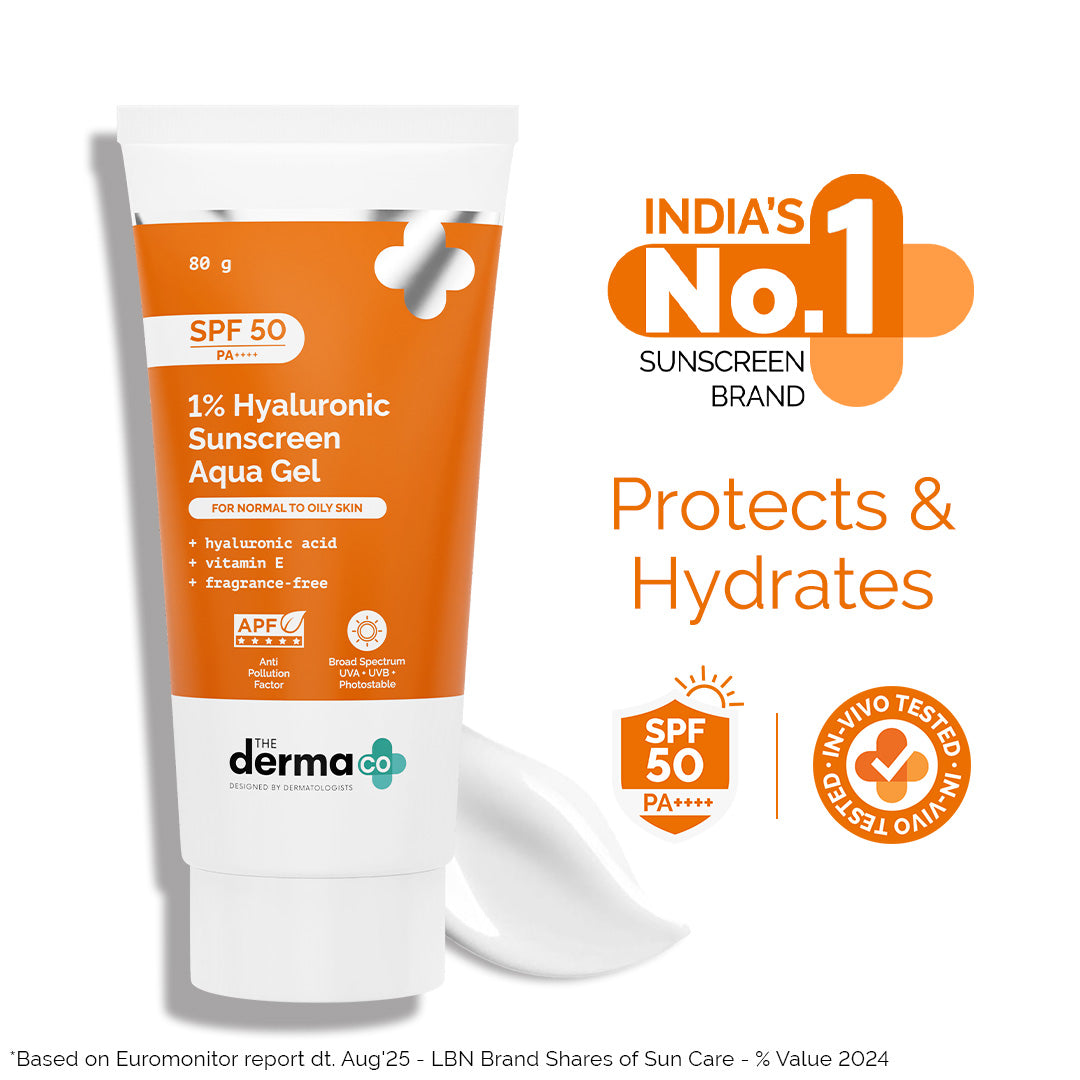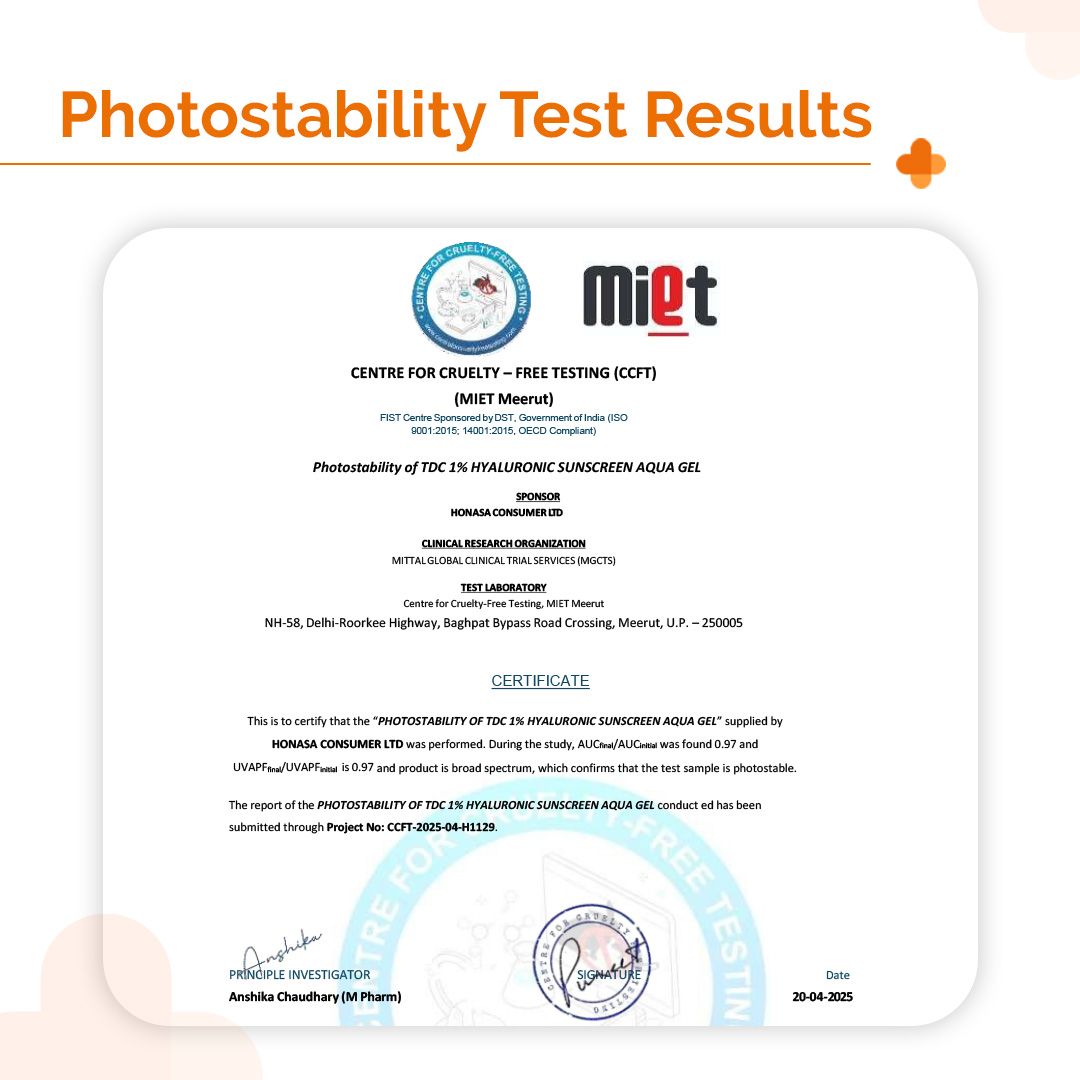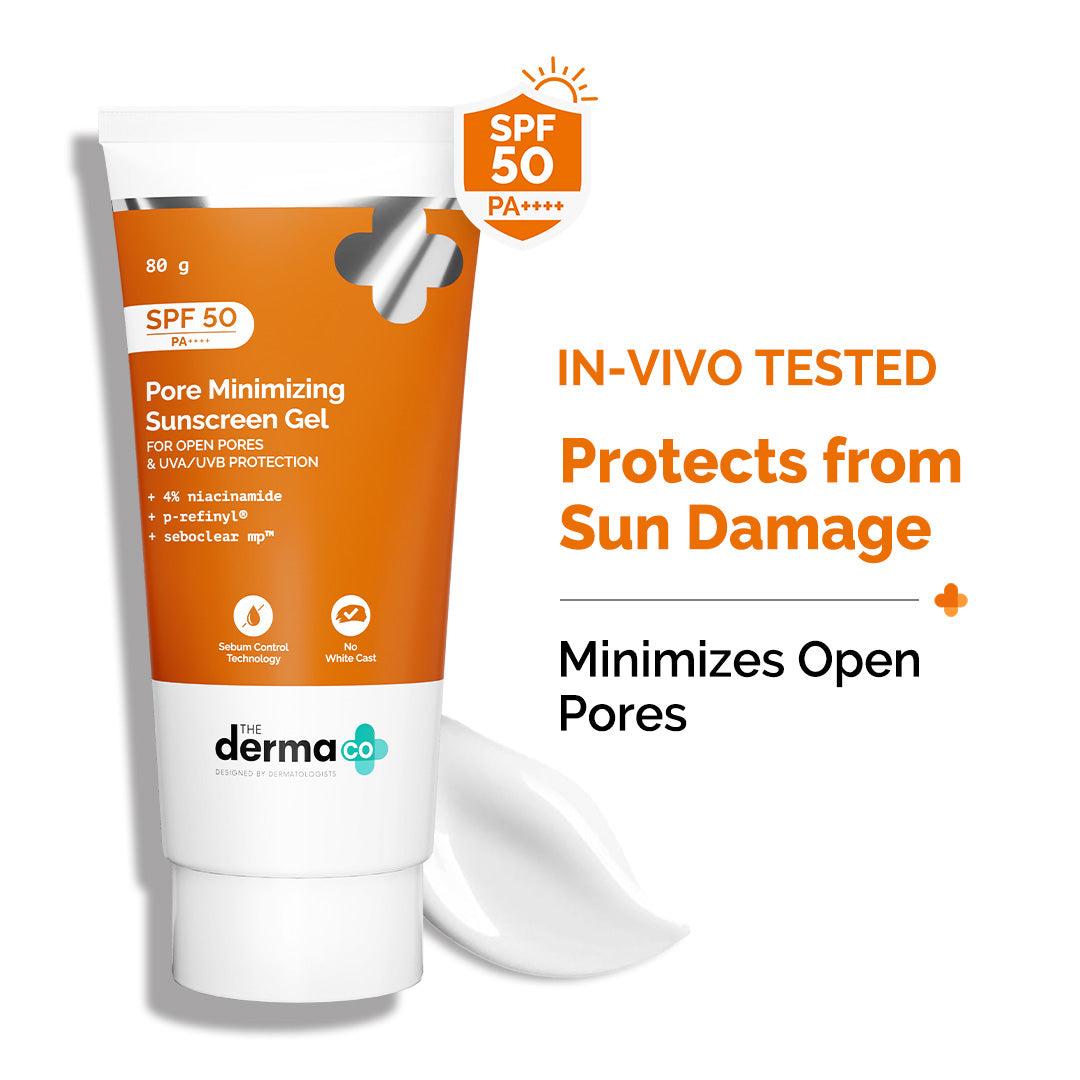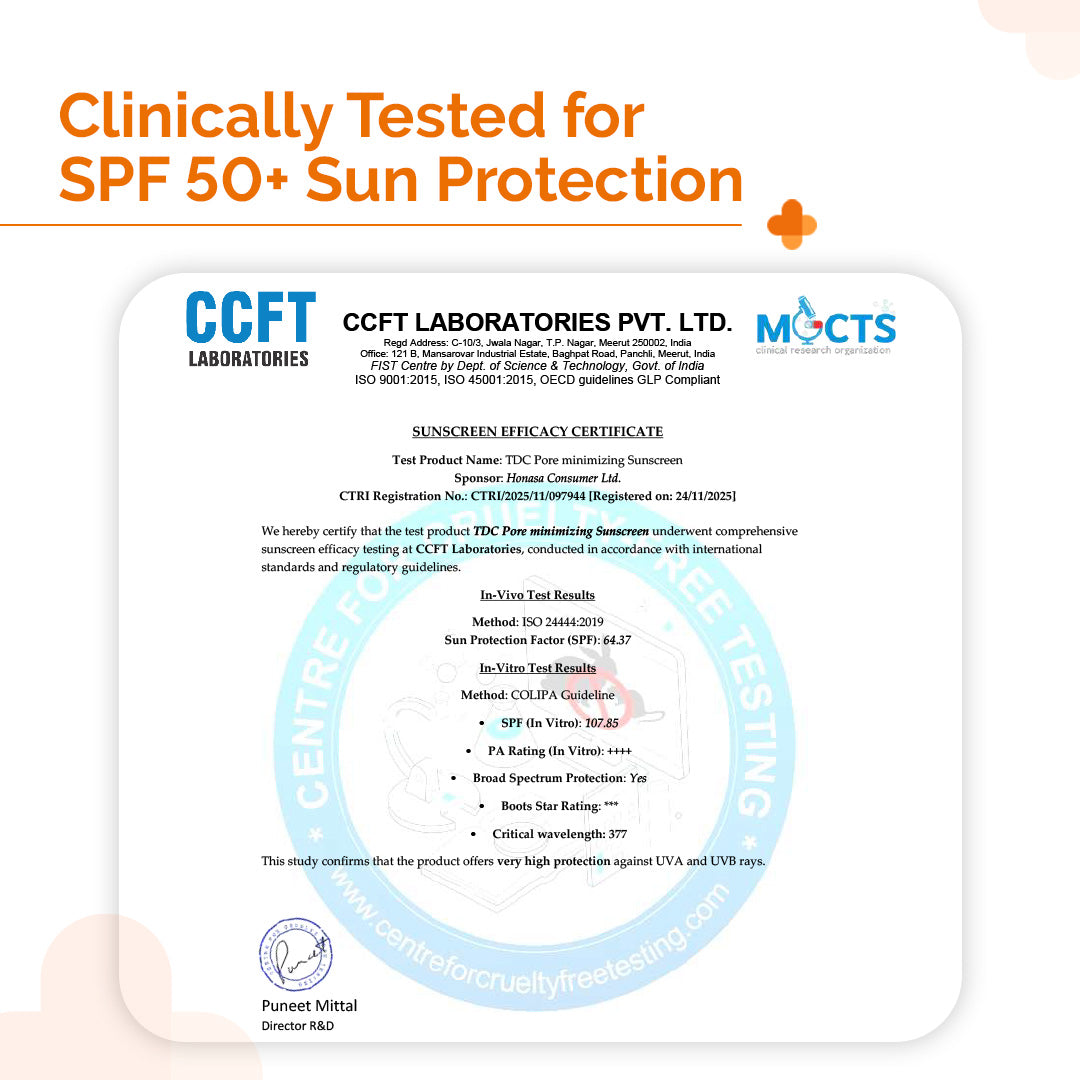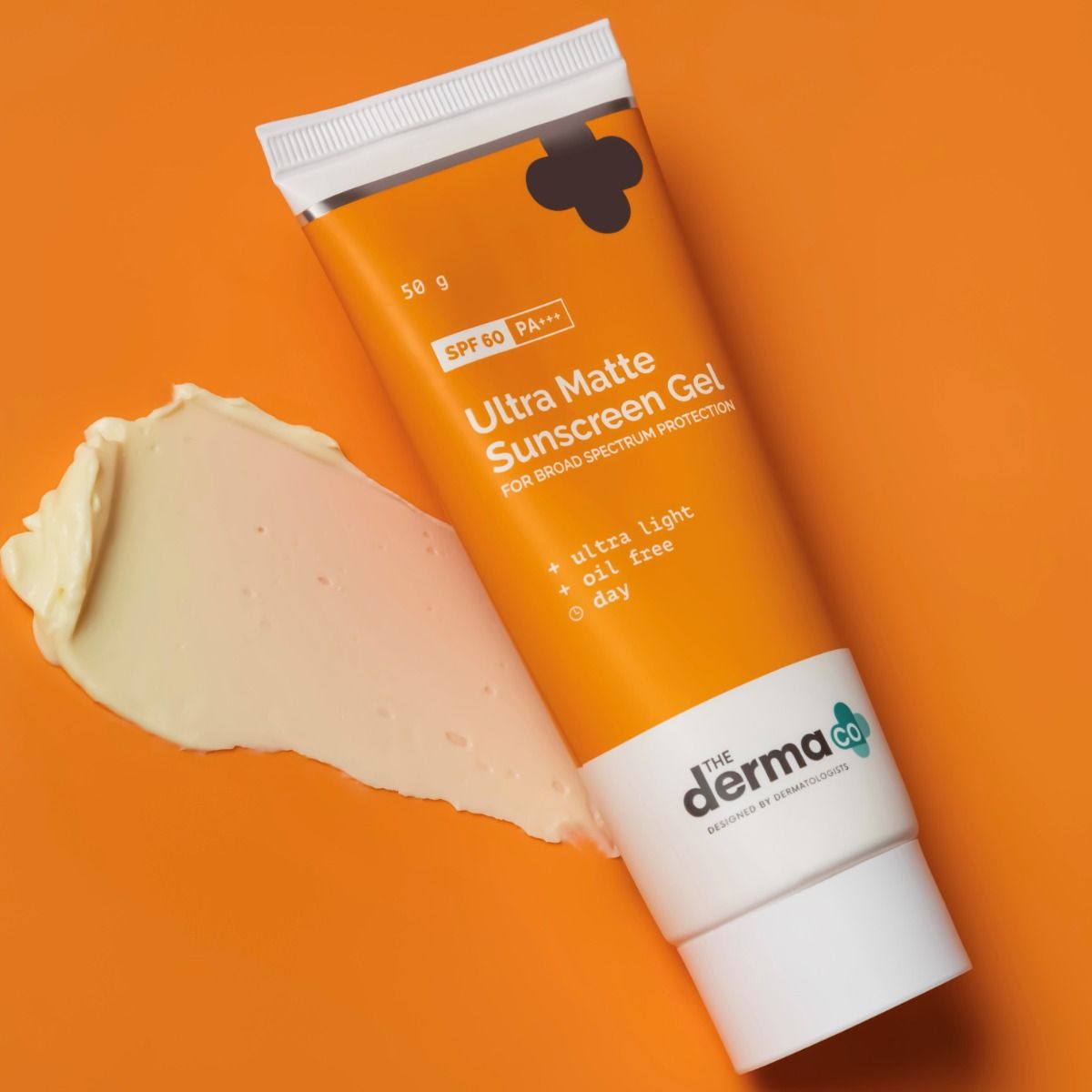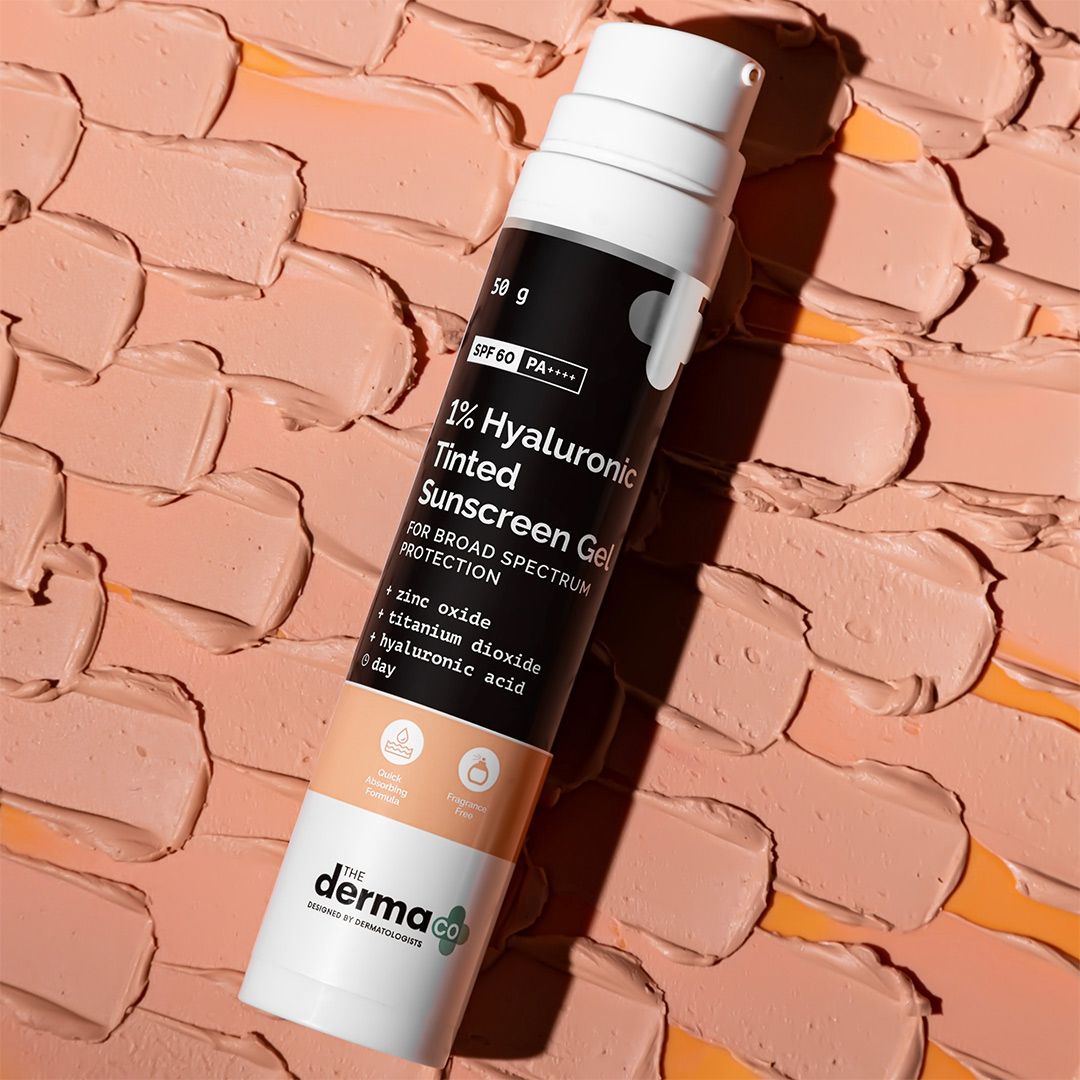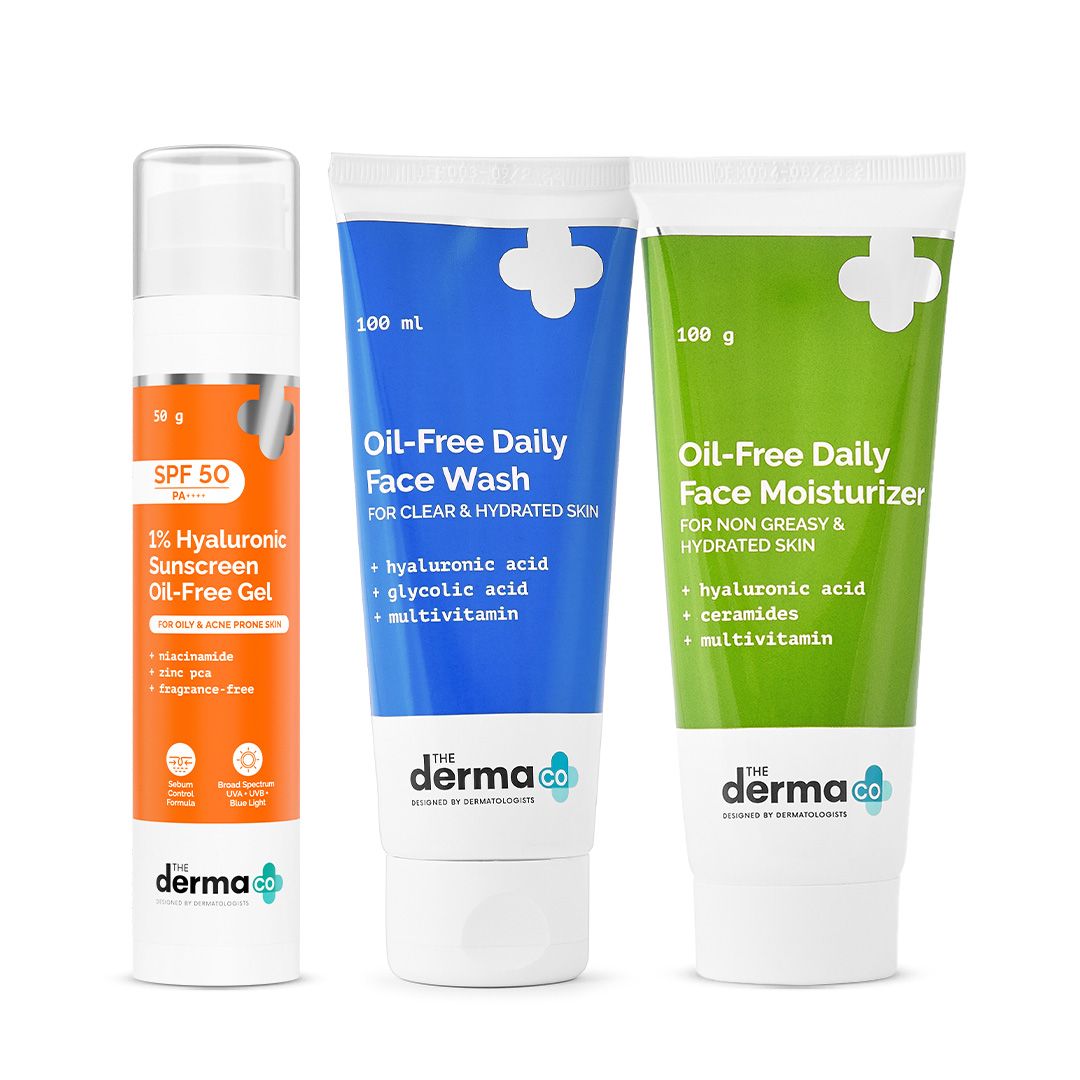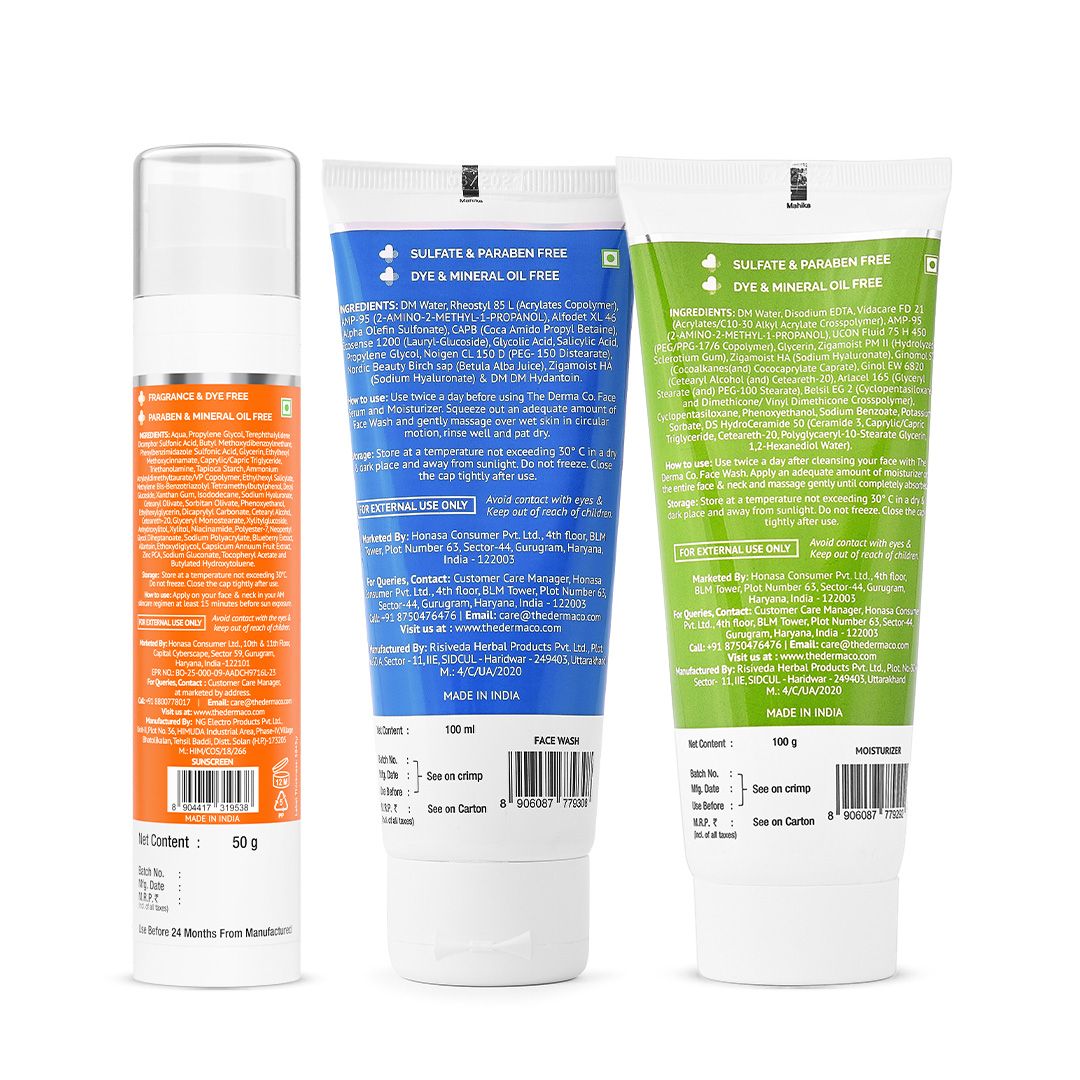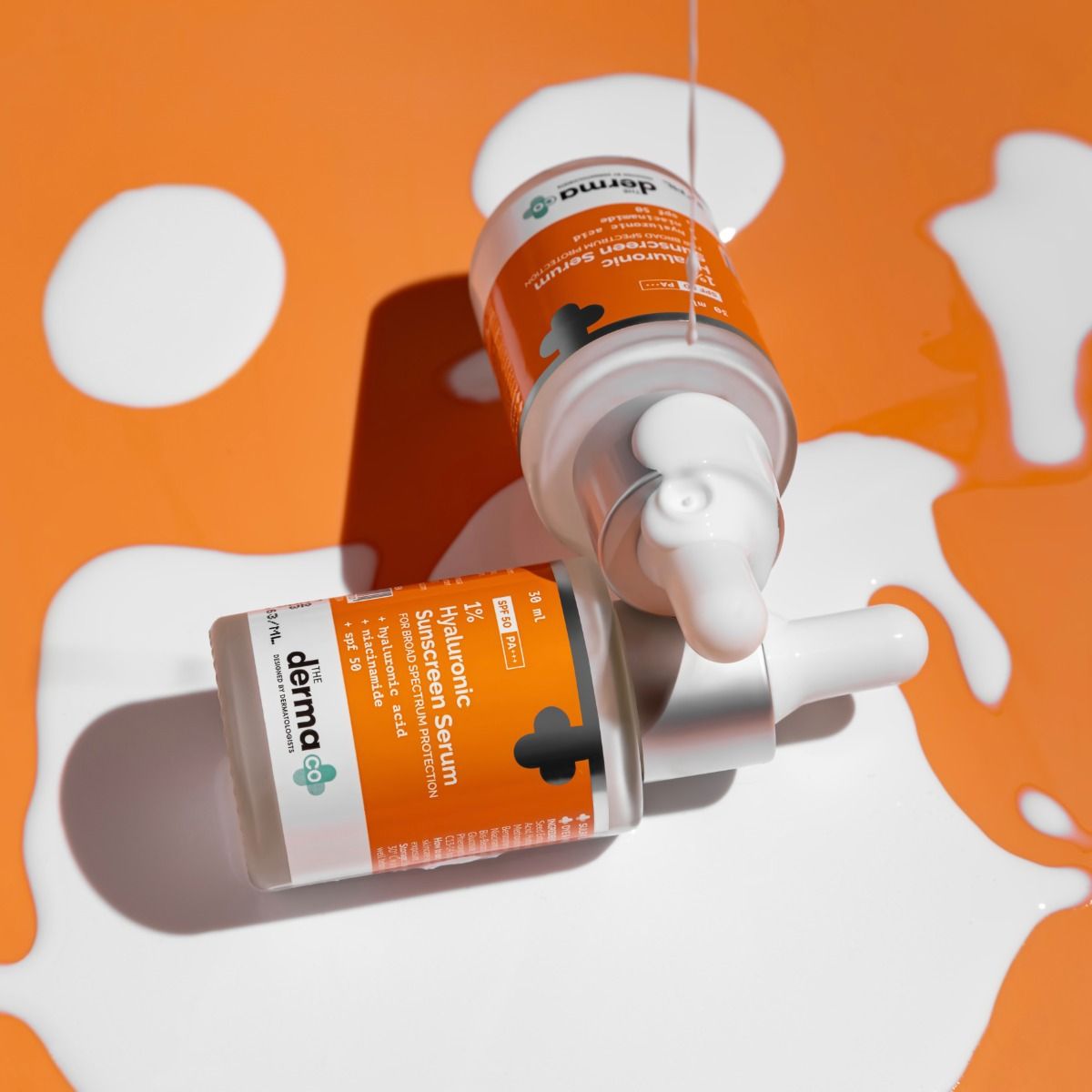Sunscreen for Oily Skin
FAQs
Sunprotectants work best when they comprise safe, gentle, and toxin-free ingredients. Another aspect worth considering is that they should relate perfectly to the skin type they are built to serve. For example, sunscreen made for oily skin should feature non-comedogenic ingredients and have oil-controlling properties to keep skin oil-free yet protected and hydrated. One such top-notch skincare product is The Derma Co’s Ultra Matte Sunscreen Gel. It features Uvinul® A Plus, Tinosorb® S, Uvasorb®, and PARSOL® TX that filter the sun’s harmful rays. Its lightweight, oil-free formulation provides broad-spectrum protection with SPF 60. Applying this sunscreen a few times every day on a clean facial canvas ensures that the skin remains unharmed by its damaging effects.
A higher grade of Sun Protection Filter (SPF) ensures better protection from the sun's harmful UVB rays. Compared to SPF 30 sunscreen, which blocks less than 97% of UVB rays, a gel with SPF 50 will block out 98% of UVB radiation. This margin is immense in countries that have a predominantly hot and humid climate. If you are looking for a safe and gentle SPF 50-based sunblock gel, we recommend The Derma Co 1% Hyaluronic Long-Lasting Sunscreen. It features SPF 50 & PA+++ that safeguard the skin from UVA/B rays, eliminating the need to reapply every 6 hours. It is powered by Hyaluronic Acid and Vitamin E. This SPF promotes moisture retention, nourishes the skin barrier, and adds a dewy glow. This skincare product also comes with a Heat Shield Formula to effectively block the damaging effects of heat in environmental stressors. Lightweight and non-greasy, it blends easily on the skin without weighing it down. It also helps support skin barrier function. Being designed by dermatologists makes it all the better.
It depends on the ingredients and the texture of the sunscreen itself, though you may be sure to use them anyway in most cases. Good-quality sunblock gels or creams should be applied on a cleaner facial canvas. Thus, one should wash one's face with a toxin-free face wash and follow it with a safe and gentle face moisturizer. After the latter has been absorbed, one should apply sunscreen. Be sure to let it stay for at least 15 minutes before stepping out in the sun. This will help the sunblock gel get to work more effectively.
Yes, a great deal, even for people with oily and acne-prone skin. Sunscreens always come with a rating called Sun Protection Filter. The higher the rating, the better. A higher grade of Sun Protection Filter (SPF) ensures better protection from the sun's harmful UVB rays. Compared to SPF 30 sunscreen, which blocks less than 97% of UVB rays, a gel with SPF 50 will block out 98% of UVB radiation. This margin is immense in countries that have a predominantly hot and humid climate.
Usually, no. Sunscreen is only meant to protect you from the sun's harmful UVA/B rays. Acne and pimples result from various unrelated factors, such as teenage, excessive stress, ill-advised eating practices, or even irregular sleeping patterns. It is thus advised to consult a skincare expert to get the correct diagnosis for the same. Applying the advised set of skincare products, like an anti-acne face wash and anti-acne gel, would help you see sustained results in combating pimples.
It is always advisable to apply any skincare product on a clean facial canvas. We recommend that you apply your preferred sunblock gel or cream after washing your face with a toxin-free face wash. To get even better results, you should apply a safe and gentle face moisturizer after using the face wash and before applying the sunscreen. Be sure to let the sunblock stay for 15 minutes, after which you may venture into the sun. This will help it work more effectively no matter what your skin type is.
We advise applying all skincare products on a cleaner facial canvas with a toxin-free face wash. This should be followed by applying a safe and gentle face moisturizer. After it has been absorbed, you should apply the sunscreen. Be sure to let it stay thus for 15 minutes, after which you may venture into the sun. This will help the sunscreen work more effectively no matter what your skin type is.
No. Like most skincare products (except night gels or skin repair creams), it is advisable to wash off sunscreen before going to bed. This will also help the skin breathe more freely.
Yes, provided it is made using safe and gentle ingredients and has a toxin-free composition. Such a sunblock gel usually features a sweat- and water-resistant formulation that does not leave a white cast on the skin. Being oil-free and non-comedogenic makes them all the better. If you are looking for a safe and effective sunscreen for oily skin, we recommend you try The Derma Co's Ultra Light Zinc Mineral Sunscreen with SPF 50 for Broad-Spectrum, UVA, UVB, and Blue Light Protection. Powered by Zinc OXide and Glycerin, it provides broad-spectrum protection and helps restore the skin's hydration levels. For the best results, we recommend applying it to a clean facial canvas.
If our skin appears shiny after applying any skincare product, it could be due to several interrelated factors. You might have oily or combination skin, you might be using comedogenic skin care products, or you might not be using skincare products according to your skin type. You might also be using sunscreen creams or moisturizers excessively, or you might not be giving the latter time to get absorbed in the skin. At the very least, you should switch to applying sunscreen only on a clean facial canvas to avoid clogging skin pores with dust and grime. Then, you should opt for gel-based or matte-based sunscreens because they would help you provide enhanced sun protection without clogging your skin pores. This will drive out any chances of greasiness or stickiness on your face.



